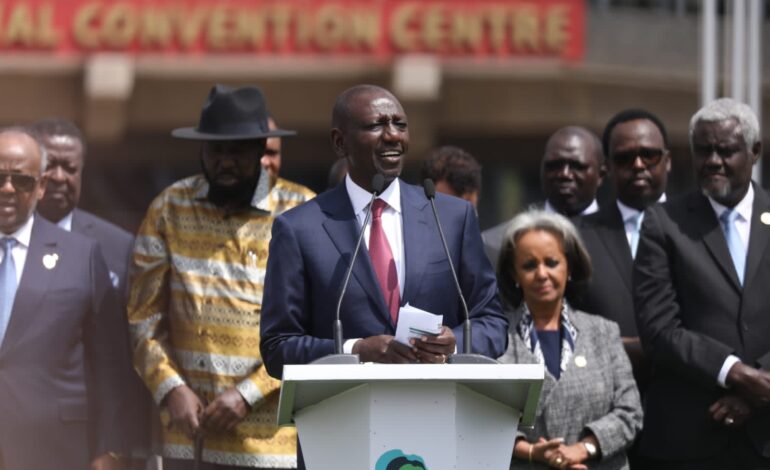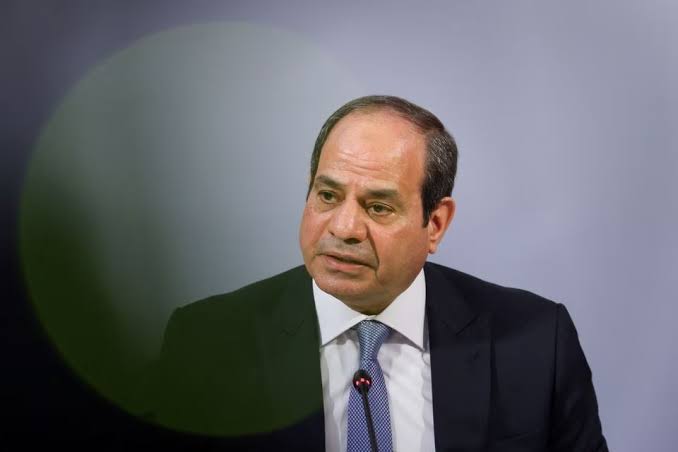
Faith Nyasuguta
African leaders have requested for debt relief across the continent to allow nations to get on with responding to the climate crisis, as they publish the Nairobi Declaration at the end of the first African climate summit.
The declaration, which had a heavy focus on climate finance, also included a call for global carbon taxes, and for increased representation of African and other countries in the governance of multilateral banks.
However, delegates and campaign groups were critical of the spotlighting of climate finance across the event which, they said, came at the expense of issues such as adaptation and climate insecurity, at a time when extreme weather events across the continent have disrupted livelihoods, sparked displacement and worsened food insecurity.
“Many communities bearing the brunt of increasing floods and droughts, while also at risk of conflict, are disappointed there wasn’t more emphasis on ensuring that green investments trickle down to them,” Nazanine Moshiri, a climate, environment and conflict analyst for Africa at the International Crisis Group said.
The leaders’ plans to scale up carbon markets projects on the continent, through the African carbon markets initiative launched during the Cop27 last year were opposed.
“The first ever African climate summit ended with a weak and inadequate declaration and [it is] clear that old colonial attitudes from global north continue to dictate Africa’s climate policy, imposing failed and dangerous carbon markets on the continent,” read a statement by a civil society network convening as the Africa people’s climate assembly.
“There’s been a significant shift in the leadership’s approach to matters climate change,” said Ali Mohamed, Kenya’s special adviser for climate change, who believes the plans outlined in the declaration will be “groundbreaking”, and lauded plans to pursue private climate investments more aggressively.
A number of African leaders believe that carbon markets will have enormous economic potential, and may increase the climate funds available to the continent.
Campaigners, however, raised concerns over the “commodification” and extraction of Africa’s natural resources and “greenwashing”, and said the projects allowed western companies and countries to continue polluting. They argued that they were sidelined before and during the conference.
Rights groups also said the summit was a missed opportunity to address human rights concerns surrounding renewable energy projects in Kenya and elsewhere on the continent, where installations have been linked with allegations of rights violations, loss of livelihood and violations of the rights of Indigenous peoples, according to reports by the Business and Human Rights Resource Center.
“The declaration itself is very silent on human rights,” said Joab Okanda, Christian Aid’s pan-African advocacy adviser, who convened the joint protests against the summit. “A just energy transition should have human rights at the centre.”
The summit’s call for the continent to pursue a “green growth” pathway received wide support among leaders and climate groups.
“Renewable energy could be the African miracle but we must make it happen. We must all work together for Africa to become a renewable energy superpower,” António Guterres, the UN secretary general, told the conference.
UAE, the country hosting the upcoming Cop28 summit in November, pledged $4.5bn to boost renewable energy on the continent. Sultan Al Jaber, the president of the summit, told the meeting that “the world is losing the race to meet its climate change goals”.
RELATED:




